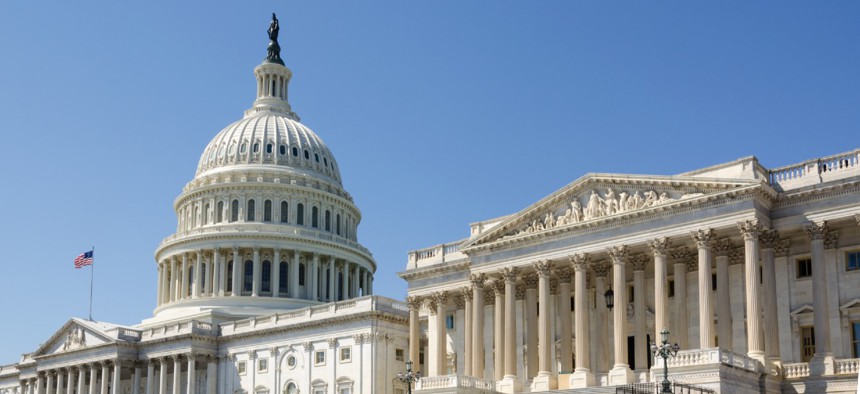
By Alison Hancock / Shutterstock.com
House Sends COVID Relief Bill with Sick Leave for Feds to Biden, and More
A weekly roundup of pay and benefits news.
The House on Wednesday voted 220-211 to pass the $1.9 trillion COVID-19 relief bill as modified by the Senate, which includes provisions on federal employee sick leave and workers’ compensation, sending the bill to President Biden for enactment.
The bill includes a provision that grants federal employees, including those in the U.S. Postal Service, up to 15 weeks, or 600 hours, of paid sick leave—capped at $1,400 per week—if they are suffering from symptoms of the coronavirus, if they are caring for a family member who has COVID-19, if they are getting vaccinated or experiencing symptoms related to the vaccine, or if they are caring for a child whose school or child care center is closed or engaging in virtual learning due to the pandemic.
The additional leave will be available from when the bill is signed into law until Sept. 30. As the Senate debated the bill, Republicans attacked the sick leave provision, arguing that it was a “bailout” that was too generous to “bureaucrats” and that it lacked proper oversight.
Over the weekend, Sen. Todd Young, R-Ind., proposed an amendment to the bill that would have removed the sick leave provision, which cost $570 million, and replaced it with $300 million for chemical screening devices for U.S. Customs and Border Protection to look for drugs and other illicit substances at ports of entry. That amendment failed by a 47-50 vote.
The bill also includes a provision that codifies the federal government’s policy that states that agencies will presume that frontline federal employees who test positive for COVID-19 contracted the virus during the course of their official duties for the purposes of workers’ compensation claims.
The Labor Department administratively updated its rules regarding COVID-19-related workers’ compensation claims for federal employees to reflect this last May. The so-called “presumption of workplace causation” makes it much easier for workers to receive these benefits.
The White House has announced that President Biden will sign the COVID-19 relief package on Friday.
On Sunday, President Biden signed an executive order on expanding Americans’ access to voting in elections, which could expand the availability of time off for feds to exercise their right to vote and volunteer to help administer elections.
The order instructs the Office of Personnel Management to expand the federal government’s policy to grant federal workers time off to vote in elections at all levels of government, specifically to “include efforts to ensure federal employees have opportunities to participate in early voting.”
In last year’s election, OPM policy was that agencies should grant “limited” excused absences to federal employees so that they can vote, only providing time off on Election Day if polling stations are closed fewer than three hours before or after work hours, or if a federal employee’s polling place is beyond normal commuting distance and they are unable to cast an absentee ballot. The agency also said that agencies should not provide time off for early voting if the hours that polling places were open were shorter than the voting hours on Election Day, because the employee “has opted to vote at that time.”
The new order also instructs agencies to find new strategies to “better support” feds who want to volunteer to work on elections in nonpartisan positions like manning polling stations or serving as election observers.
OPM’s recommendations on the issue are due Sept. 23.







